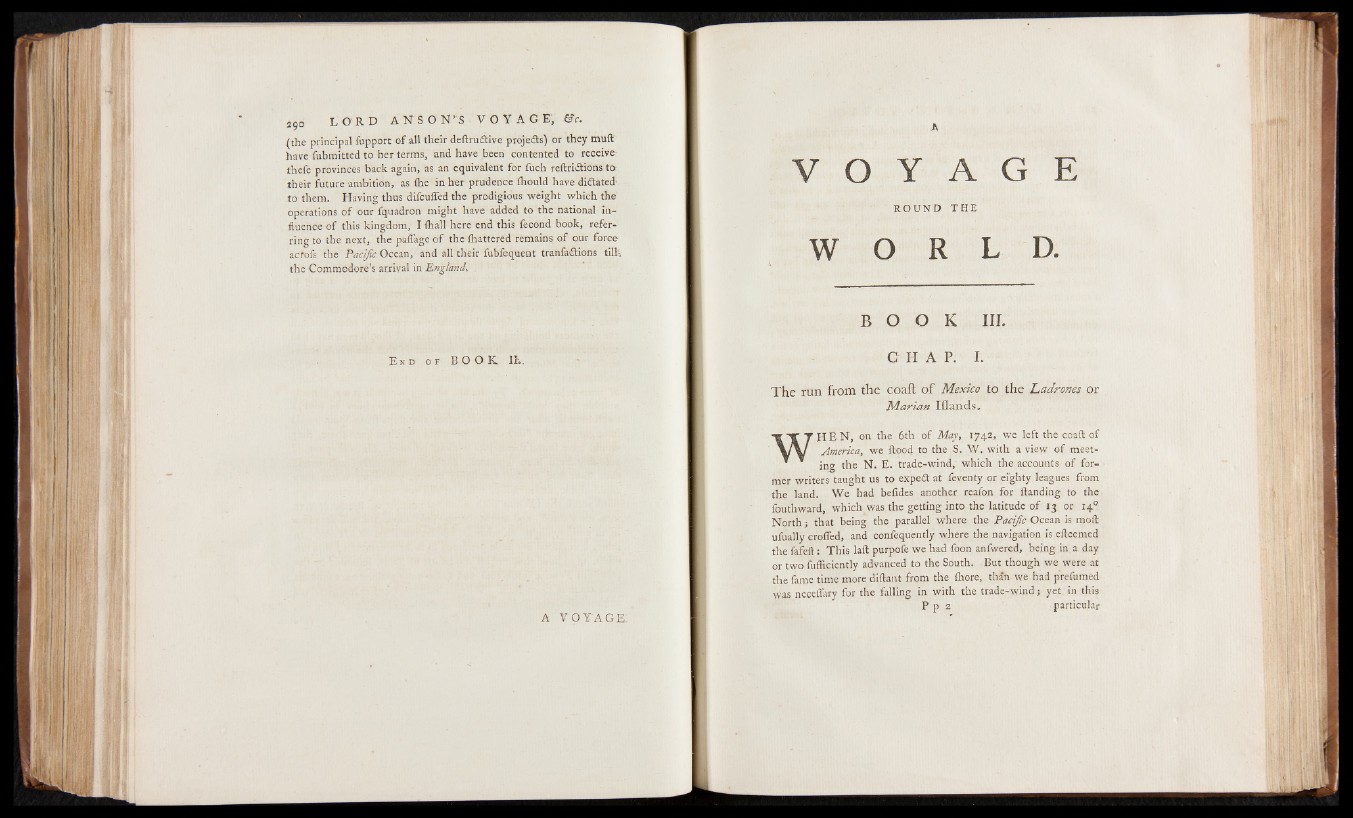
np
nin 1 i I v -
290 L O R D A N S O N ’ S V O Y A G E, &V.
11
I (the principal fupport of all their deftruiftive projefts) or they muft
have fubmitted to her terms, and have been contented to receive
thefe provinces back again, as an equivalent for fuch reftriftions to-
their future ambition, as (he in her prudence fhould have diftated-
to them. Having thus difcufled the prodigious weight which the
operations of our fquadron might have added to the national influence
of this kingdom, I (hall here end this fecond book, referring
to the next, the paflage of the (hattered remains of our force
acrofs the Pacijic Ocean, and all their fubfequent tranfa&ions tilh
the Commodore’s arrival in England-,
Hljijf
■ 1 If:
I I
E nd o f B O O K IL.
1
A V O Y A G E :
111 I I H
M II
A
V O Y A G E
R O U N D THE
W O R L D .
B O O K n r .
C H A P . I .
The run from the coaft o f Mexico to the Ladrones or
Marian Iflands.
WH E N , on the 6th of May, 1742, we left the coaft of
America, we flood to the S. W. with a view of meeting
the N. E. trade-wind, which the accounts of former
writers taught us to expea at feventy or eighty leagues from
the land. We had befides another reafon for ftanding to the
fouthward, which was the getting into the latitude of 13 or 14°
North; that being the parallel where the Pacijic Ocean is mod
ufually crofled, and confequently where the navigation is efteemed
the fafeft: This laft purpofe we had foon anfwered, being in a day
or two fufficiently advanced to the South. But though we were at
the fame time more diftant from the (hore, thin we had prefumed
was neceflary for the falling in with the trade-wind; yet in this
P p 2 particular